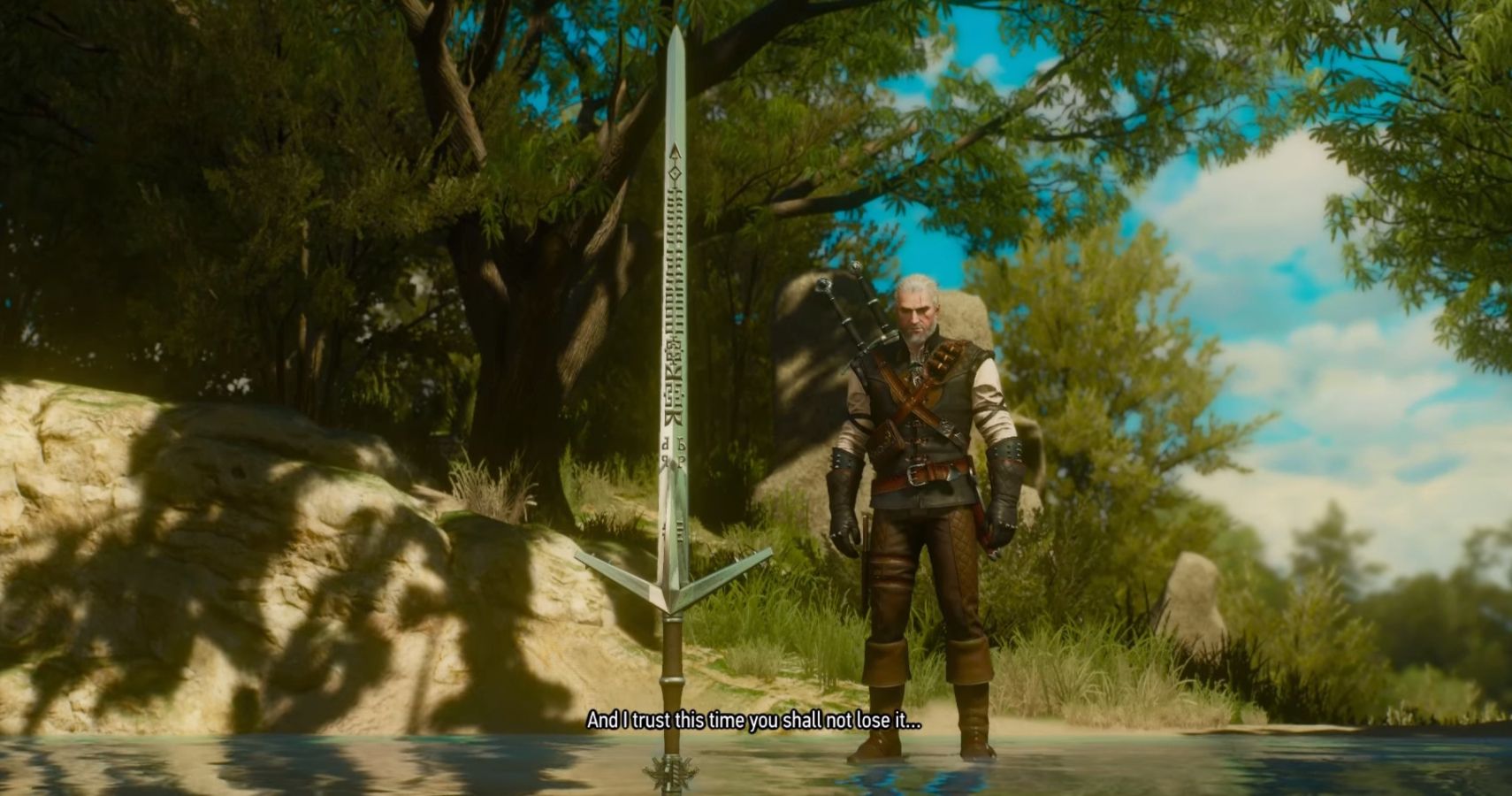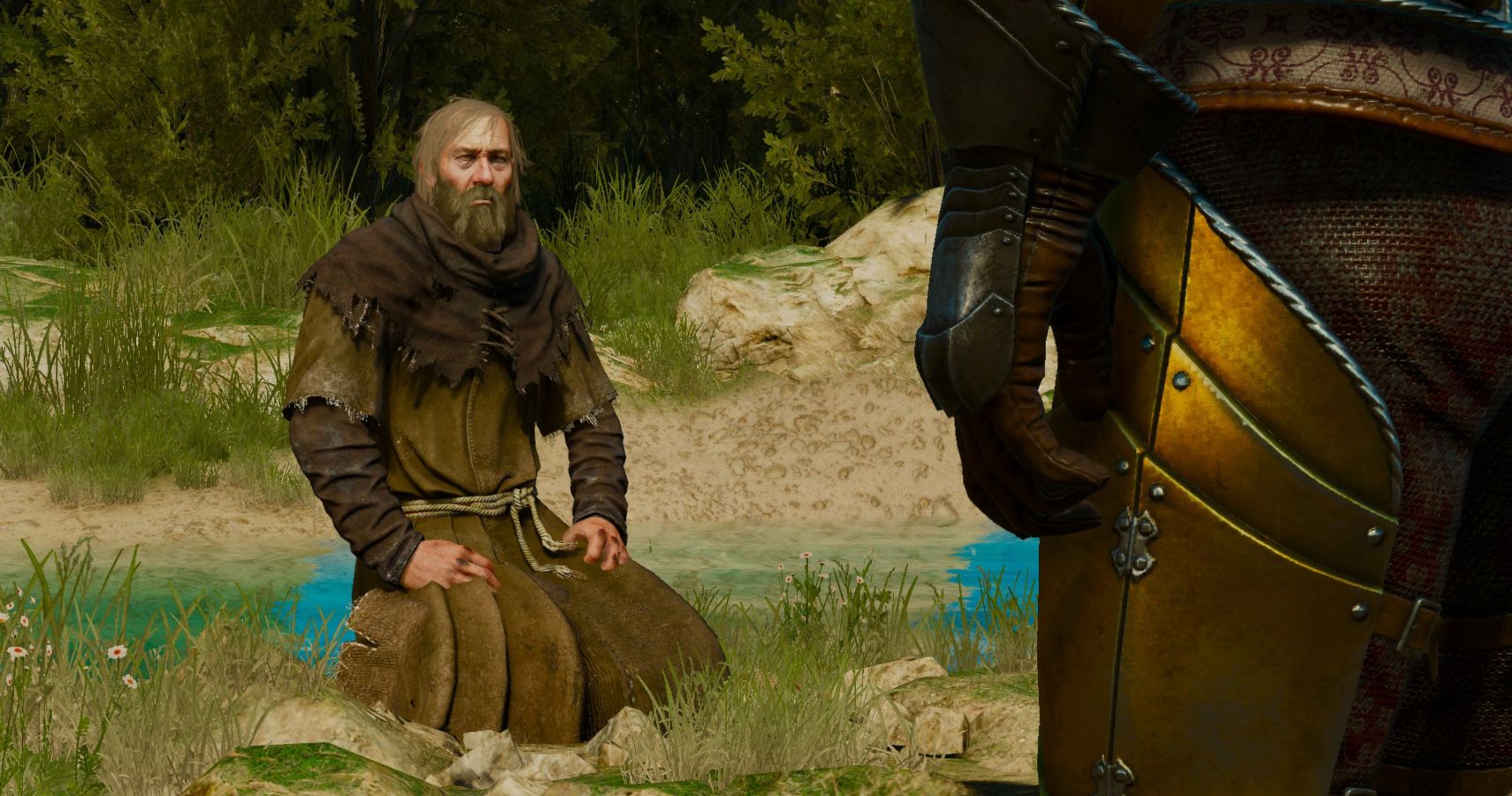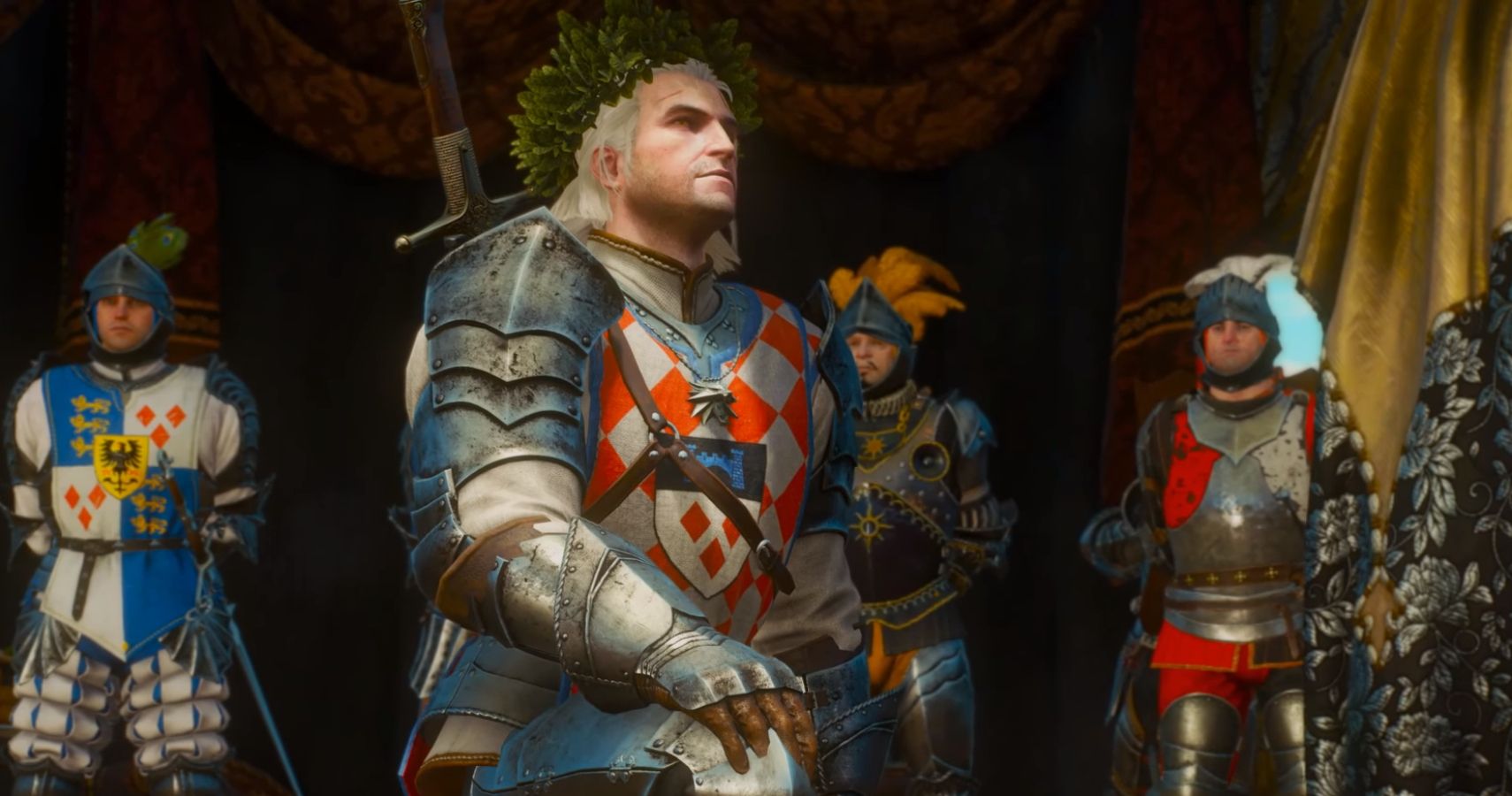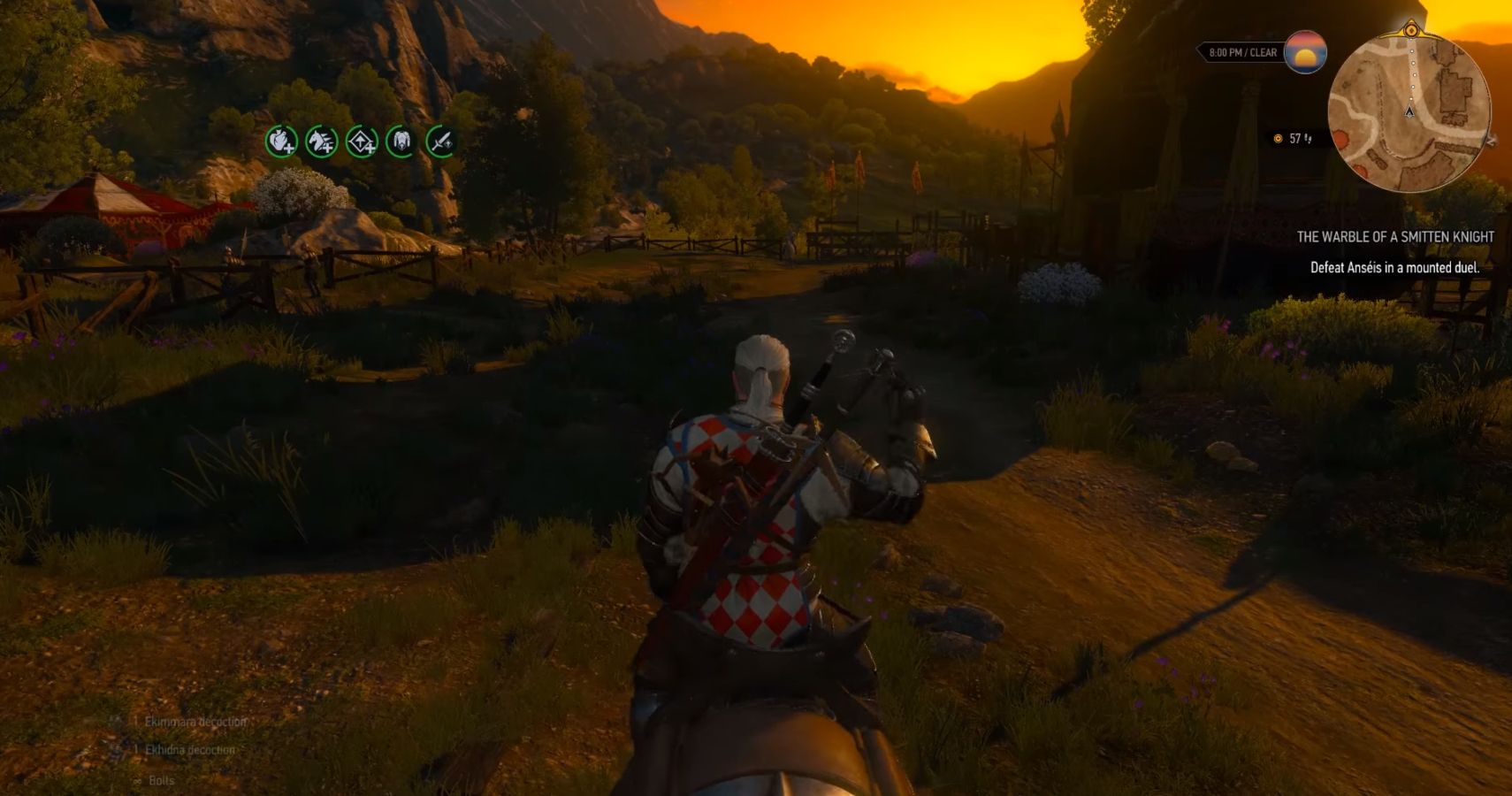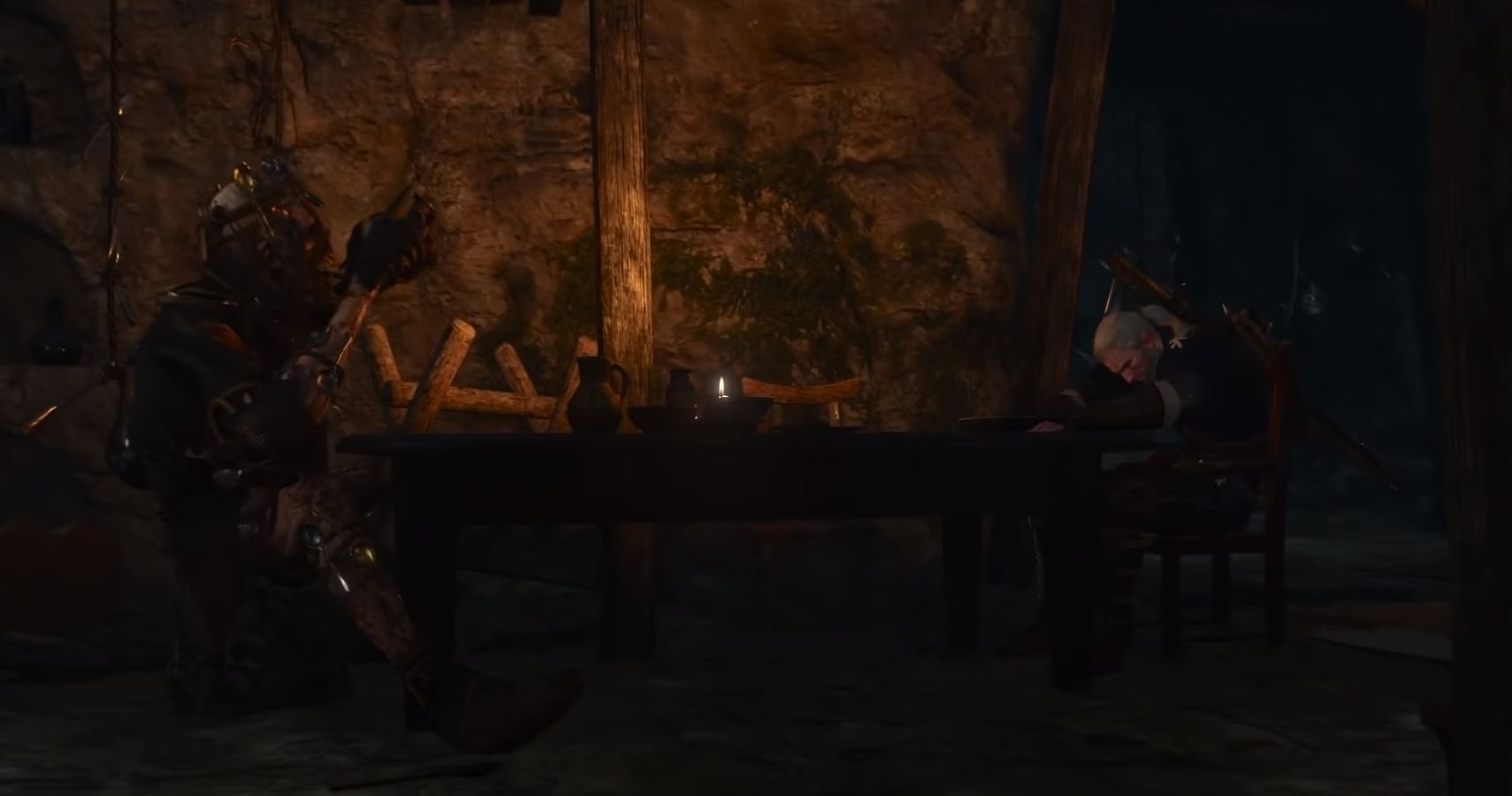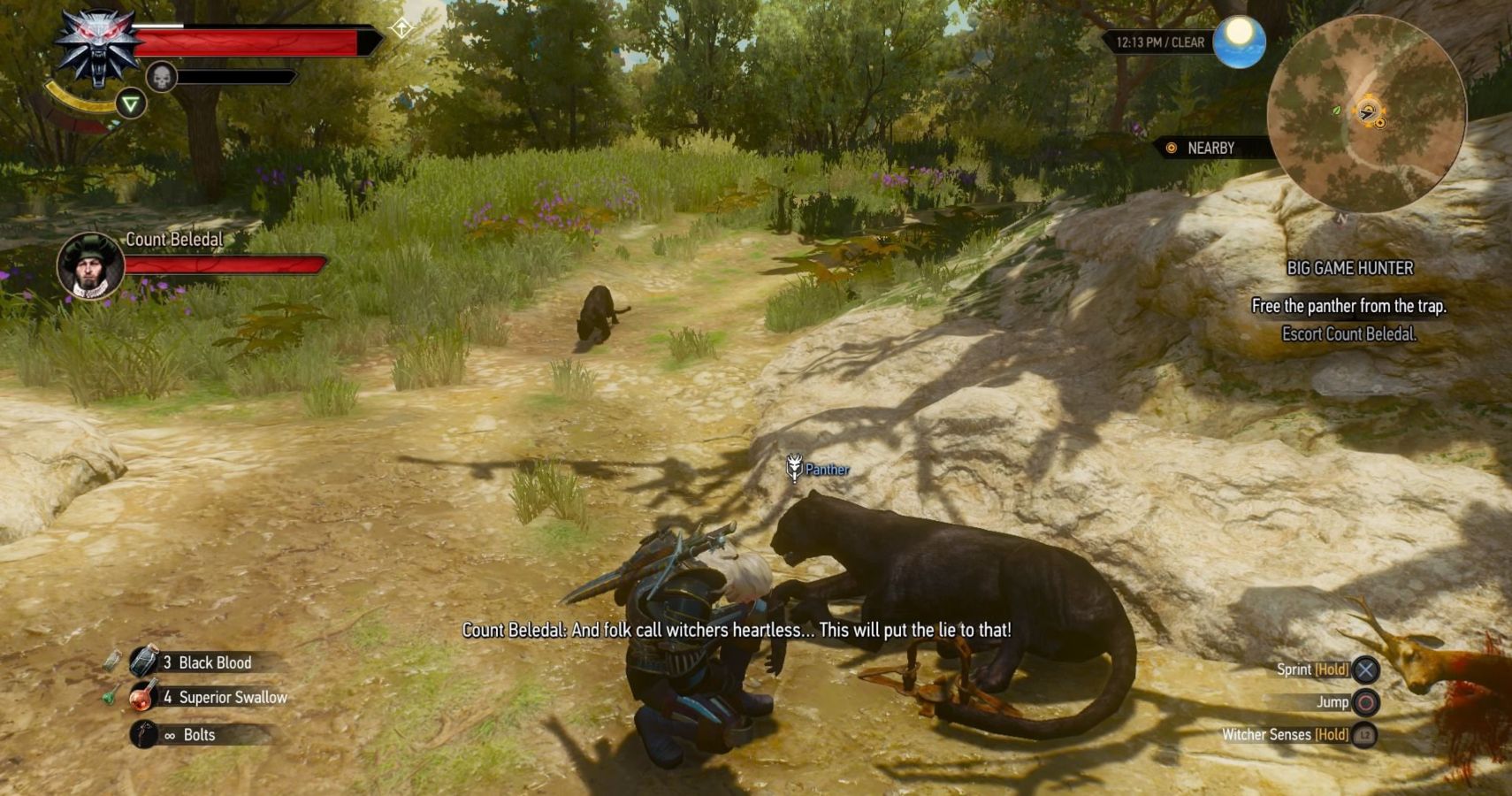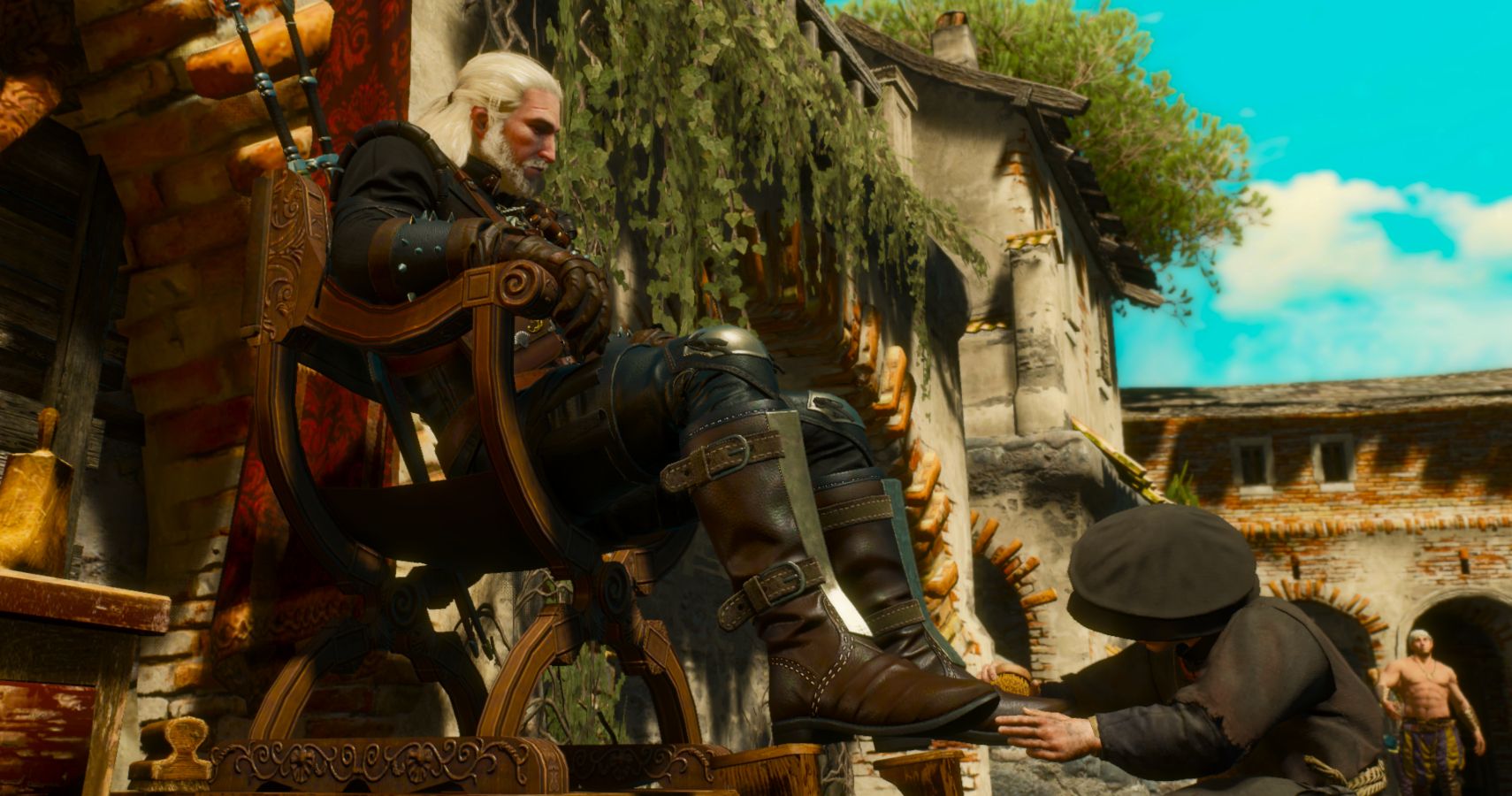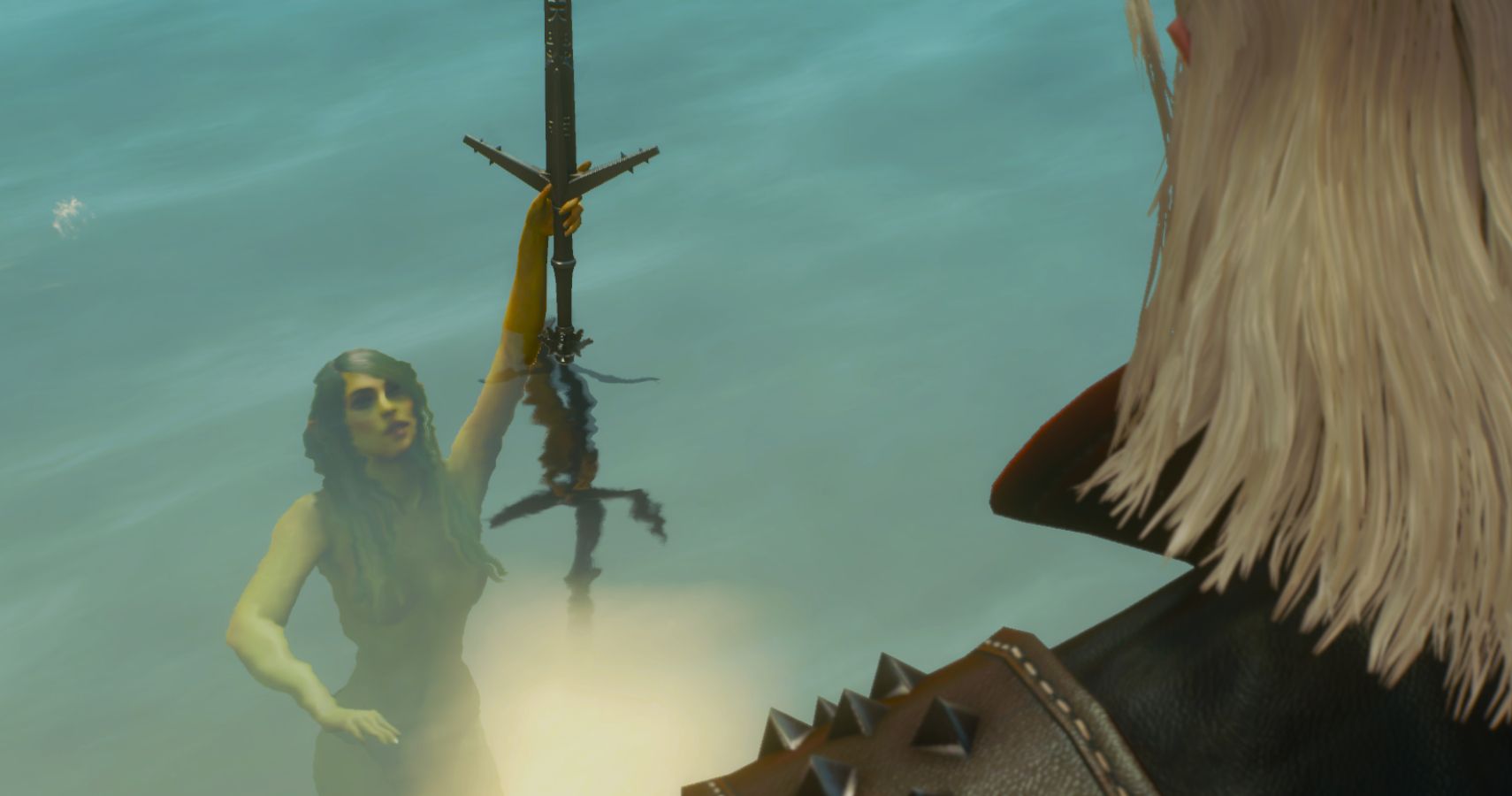Aerondight from Witcher 3's Blood and Wine expansion is one of the best silver swords in the entire game.
What makes the sword so great is the fact that every hit you land with it generates a bit of charge that increases the weapon's damage by ten percent (although you lose charges overtime or when Geralt takes damage). Once the sword is fully charged, every strike with it is a critical hit.
Plus, when you kill someone with the fully charged sword, the weapon will receive a permanent damage increase, and the maximum limit of that increase is raised every time Geralt levels up (however, you'll have to recharge the sword after every fully charged kill).
With the sword being as powerful as it is, it should come as no surprise that it's a little complicated to get, but if you follow this guide, you should be fine.
7 Acquiring The Quest
To get the sword, you need to complete the quest titled 'There Can Be Only One.' The quest can be picked up from a notice board, try the one in The Gran'Place in Beauclair, yet it's likely listed on several. Alternatively, you can go straight to lake Lac Celavy (where the note from the notice board sends you), which is directly east from Corvo Bianco, there you'll find a little island in the middle of the lake.
When you get to the island, you'll meet a Hermit who will tell you about the sword and explain that in order for someone to get it they have to possess the five chivalric virtues, which are valor, honor, wisdom, sympathy, and generosity.
Now, if you have already done a lot of the quests in the expansion then you may have already shown that you possess those virtues, as the game thankfully tracks them regardless of whether you acquired the quest or not. If that's the case then you'd just have to win one more battle, and you'd get the sword.
For everyone else, you still need to prove you have these virtues by doing certain things in the expansion's quests. This is where it gets complicated as the game doesn't specify what you have to do, hence the guide.
6 Proving Your Valor
For every virtue, the game kindly gives you plenty of chances to prove you possess them, although you only need to prove you possess each virtue ONCE to get the sword. In this guide, we won't go through every opportunity to get each virtue as there are too many, but we'll explain a few for each one.
One way to prove your valor is by winning the tournament during 'The Warble of a Smitten Knight' quest (which is triggered after beating the main quest titled 'The Beast of Toussaint'). This one is pretty self-explanatory, the only real thing to note is you have to choose to continue participating in the tournament partway through the quest, and you obviously have to win it (watch out it's easy to lose).
Another way to do it is through the Fists of Fury: Toussaint questline. First, beat the three ordinary opponents, then follow the Raging Wolf quest to beat the Maestro, which is enough to prove your valor.
Valor is actually a pretty easy virtue to prove, and you'll likely pick it up just from playing the expansion because completing any quest that involves you beating a huge beast (such as Witcher contracts) or a particularly difficult enemy usually is enough.
5 Proving Your Honor
There are two ways to prove your honor in 'The Warble of a Smitten Knight' quest. The first requires you to choose to use the name Geralt while registering for the tournament, then later someone will challenge you to a mounted duel, beat him, and you'll have proven your honor. Also in that same quest, you learn of Vivienne's secret, never tell anyone what it is, and that'll work too (it'll take until the end of the quest to credit you for it).
You can also prove your honor during the 'Goodness, Gracious, Great Balls of Granite!' quest, which can be found on a notice board, although if you hear a man shouting about an art exhibition being closed, go to him to start it. During the quest, you'll find the stones the art curator is missing, just bring them back to him and the game will deem you honorable.
In general, if you just keep your word with quest givers, then proving your honor should be no problem.
4 Proving Your Wisdom
For those who don't feel like playing a bunch of different quests to get the sword, you're in luck, as wisdom is another virtue you can prove during 'The Warble of a Smitten Knight' quest. This is done by lifting Vivienne's curse, which you'll do at the end of the quest.
Proving your wisdom can also be done during the main quest titled 'La Cage au Fou.' All you have to do is lift the Spotted Wight's curse, to do this, obviously choose to try to lift the curse instead of attacking the creature, and then make sure you both eat the meal WITHOUT using spoons. Afterward, follow the smell to find that the wight has now become a woman again.
Lifting curses, solving puzzles, avoiding conflict through conversation, or winning the local Gwent tournament are the most common ways to show that you're wise.
3 Proving Your Sympathy
If you choose to prove your wisdom by lifting the spotted wight curse, you'll bring the former wight (now Marlene) back to Geralt's vineyard. After a couple of days you can talk to her, just ask her to stay at the vineyard, and that'll be enough to show you're sympathetic.
The Big Game Hunter quest (which can be found on a notice board) gives you another opportunity to prove your sympathy. It's a quest where you walk around with Count Beledal to spot animals. During it, you'll come across two panthers with one stuck in a trap, make sure to use Axii on her, and then free her. At the end of the quest, you can ask the Count's people if something was wrong with him, they'll tell you that his daughter is bedridden. Afterward, the count will return, and assuming you followed his instructions during the quest, he should invite you to a gathering he's having, accept his invitation and attend it the next day. Then when he talks to you at the gathering, make sure to ask about his daughter, that'll prove you possess sympathy.
If you are unsuccessful in those, then showing creatures mercy when given the chance will also work.
2 Proving Your Generosity
The easiest way to show that you're generous is by tipping the boy who gives you a letter from Triss or Yennefer. He'll be in Beauclair after the 'Blood Run' main quest, he's difficult to miss.
An equally simple (albeit more expensive) way to prove your generosity is during the main quest line when you meet a shoeshine boy. The kid will charge you 500 coins for information on Dettlaff, pay him what he asks without negotiating or using Axii, and you'll have shown that you're generous.
Another easy one is in 'A Portrait of the Witcher as an Old Man' quest where an artist paints Geralt's picture. At the end of the quest just simply buy the painting for 1000 coins.
If you miss those, just make sure to reject any additional coin you're offered and don't negotiate deals, and you'll certainly demonstrate generosity at some point.
1 Final Battle
After proving you possess the five virtues, you must return to the hermit, and he will give you one more challenge, beat him in battle. It's not the hardest of fights as most of his water attacks are easy to telegraph. So as long as you're a similar level to what the quest recommends, you should be fine. Once the Hermit is defeated, the Lady of the Lake will appear and give you the Aerondight sword.

